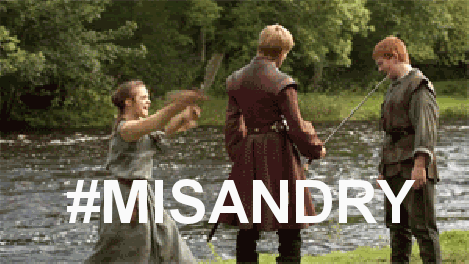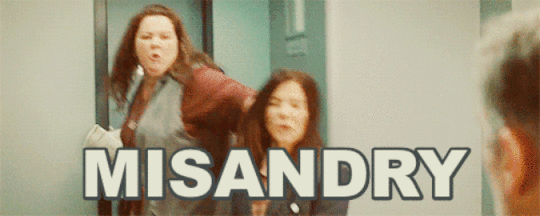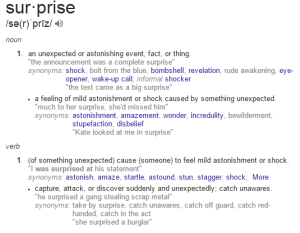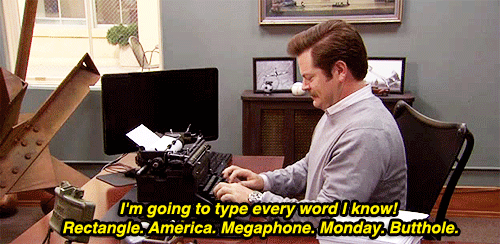C.M. Stone's Blog, page 2
May 23, 2016
Ruining My Childhood: A Pirate’s Love, chapter seventeen
In case you’re just finding these recaps, A Pirate’s Love is a historical romance novel by Johanna Lindsey written in the late ’70s. I’m a huge fan of Lindsey’s, but this book suffers from the awfulness of its era. Recaps start here.
CONTENT NOTE: No rape in this chapter, but the mind games and casual references to assault continue.
When last we left Tristan and Bettina, he changed their course without telling her and was taking her back to his rape island, while she expected to go to Saint Martin and be rescued by her fiance the Comte de Lambert.
Chapter seventeen opens with a time jump. Oh, editing be praised we don’t have to watch every monotonous moment. It’s been eleven days since Bettina was taken captive. She’s been wearing Tristan’s clothes at night to save her own from being torn when he attacks her, which he finds hilarious. There’s a reference to one night when Tristan used body betrayal against her, which she cried through and hated even more than his cruelty.

Man. What a romance, huh?
Madeleine announces that they’ve arrived at an island and both women assume it’s Saint Martin, where they’ll be ransomed and finally back to freedom. They’re amazed at how beautiful it is, and how unlike the populated island they expected. There’s no sign of an indigenous population or western buildings.
Instead of realizing that they’ve been taken someplace else, they decide the most likely explanation is that the pirate ship sailed to a deserted part of the island to avoid trouble. Only one other ship is visible in a cove and it looks like a sister to the Spirited Lady. There’s no crew to be seen on that ship either.
Bettina turned to walk back to her cabin, and ran into Jules’s massive chest. She gasped and stepped back with wide, terror-filled eyes.
“If you ladies will return to your cabins and collect your belongings, you will be taken ashore presently,” he said politely. Then he looked to Madeleine and his voice softened. “If you will hurry, please. The first boat has already been lowered, madame.”
“Where—where is the capitaine?” Bettina ventured. It was the first time she had seen Jules since the day he had tried to whip her, and no matter how much Madeleine spoke in his defense, Bettina still feared him.
“Tristan is busy.”
“But he said the exchange would take place aboard this ship. Why are we going ashore?” Bettina asked.
“The plan has been changed.”
Yes, the plan has been changed, but Bettina still doesn’t know what Tristan is doing. She goes back to the captain’s cabin to collect her dresses and the silver comb Tristan gave her. Not out of sentiment for him, however. She specifically takes it because it’s a costly item and she wants to throw it away so that Tristan is out the money he spent on it. She plans on doing the same with the dresses.

I feel you, Bettina.
Even while taking the boat to shore, Tristan still keeps this farce going. On the beach, Bettina starts to stroll away, assuming it will take time to bring the whole crew ashore, but Tristan stops her and says they’re going. Everyone but Madeleine, Jules, and ten crewmen are remaining on the ship. Bettina demands to know what’s going on. Tristan continues to be evasive, just saying that there’s a house nearby and she can take a bath.
When we arrive, we get some house porn:
They soon reached the house that Tristan had mentioned, which looked more like some kind of fortress. The building was large and built of heavy white stones. The first floor was square, and a royal palm tree stood on either side of the small front door. The second floor was U-shaped, forming a courtyard open to the front above the door. A small jungle of beautiful flowers and plants grew in pots in this courtyard, some reaching above the second-floor roof, and some trailing over the edge of the courtyard. The front-door palm trees framed the potted jungle and towered above the house. Beautiful rolling lawns, immaculately cared for, surrounded the house on all sides. The most beautiful flowers, with red, yellow, orange, even purple and blue blossoms, grew at the edge of the lawns and against every wall. The house seemed sturdy and welcoming, and she almost wished that it belonged to the Comte de Lambert, for she would have liked to live here.
Gosh, I wonder if she’ll end up living there someday.
A huge and angry man stands in the doorway, blocking their entrance:
“I would hardly be recognizin’ you, Tristan, were it not for your watchdog Bandelaire,” the man challenged.
“I can see you haven’t changed, Casey,” Tristan replied harshly.
“That I haven’t. And I’m still young enough to take you on, lad.”
“But you’ll still have to fight me first, Casey,” Jules growled.
“Enough!” Tristan said. “It’s time this old sea dog and I had it out.”
And then they wrestle and Bettina realizes they’re all just friends being really weird together. I’ve seen this sort of fake-out in a lot of fiction and it always annoys me. Yeah, people will joke around with their friends with playful insults in the real world, but nobody ever actually comes across as remotely threatening. Obviously the trope is popular, but it always has me rolling my eyes.
The more interesting part of this exchange is how terrified for Jules’ safety Madeleine is. Bettina realizes that Madeleine feels all weird and maternal towards Jules now, which is gross, considering that Jules has been enabling Tristan’s abuse and rape of Bettina.
Oh, also, Casey thinks Bettina is hot.
“Be this another one to add to your harem, lad?” a man’s voice asked.
Bettina turned and saw that Casey was staring directly at her. She felt the blood rush to her cheeks.
“I have no harem, Casey, as you’re well aware,” Tristan smiled. “One spirited lady is all I can handle at a time.”
Jules laughed, understanding which spirited lady Tristan was talking about. But Casey was perplexed, thinking of Tristan’s ship.
“Is this woman married, then?” Casey asked.
“No, but she’s spoken for, so cast your eyes elsewhere,” said Tristan.
“And here I thought I was in for a change in me luck. Be there no room for bargainin’?”
I remember something from when I was a kid and read this and now it makes this exchange super upsetting, far more so than just pirates being nasty. Let’s just say Jaime Lannister approves.

Tristan assures Bettina that Casey was just playing around and she shouldn’t get so upset when dudes try to buy her off of him.
Tristan shows Bettina to a room she can use and orders water to be heated for her bath. He continues to be evasive about where they are and what’s going on. Poor Bettina just really wants a proper bath and doesn’t notice how cagey he’s being.
While she’s exploring the mostly empty and fairly dusty room, she hears giggling from the first floor.
“Are there other women here?” she asked in surprise.
“Yes. A couple of girls from the village just came,” Madeleine replied, “to help in the kitchen. They’re pretty girls, golden-skinned, dark-haired. They speak Spanish.”
“Really?” Bettina said. “I thought Saint Martin was occupied only by the French and Dutch.”
“Apparently not, my pet.”
And there, with Bettina being thoroughly manipulated and not knowing where she really is, the chapter ends.


May 20, 2016
Historical Inaccuracy: Rushes strewn on the floor
I make no promises about how often I’ll update this series, but I’ll be writing historical inaccuracy posts for the blog, as I have a lot of pet peeves. There are a bunch of things that get repeated so often in historical fiction set in Europe–or in European history inspired fantasy–that everyone has now just accepted them as “how things were back then”.
And these things are wrong.
To day I’m going to write about rushes. The lord of the castle comes back unexpectedly and his servants apologize, for if they’d known he was coming they would have thrown down fresh rushes. The romance heroine walks through the great hall, her long gown trailing on the floor across strewn rushes and scented herbs. The cruel old duke throws a chicken bone to let the dogs fight over it among the piles of rushes.
day I’m going to write about rushes. The lord of the castle comes back unexpectedly and his servants apologize, for if they’d known he was coming they would have thrown down fresh rushes. The romance heroine walks through the great hall, her long gown trailing on the floor across strewn rushes and scented herbs. The cruel old duke throws a chicken bone to let the dogs fight over it among the piles of rushes.
The way this is described in books brings one very distinctive mental image to mind: the floor of a barn.
This is, to put it bluntly, wrong and stupid. Animal herders have shared living space with their animals throughout history and across the planet, so the idea of somebody’s home looking like a barn isn’t that outrageous, but there’s a big difference between the family who has their cows downstairs for warmth in winter and the great keep of King Duncan MacDuncan XVIII.
 What are rushes? They’re herbaceous plants that bare a superficial resemblance to grasses or sedges. Their leaves are typically rounded or flat. They grow in a wide variety of moisture conditions and have evergreen leaves, which would make them very useful for a fiber plant to gather year round for domestic purposes. The soft rush, called igusa in Japanese, is woven as a covering for tatami mats.
What are rushes? They’re herbaceous plants that bare a superficial resemblance to grasses or sedges. Their leaves are typically rounded or flat. They grow in a wide variety of moisture conditions and have evergreen leaves, which would make them very useful for a fiber plant to gather year round for domestic purposes. The soft rush, called igusa in Japanese, is woven as a covering for tatami mats.
The history of weaving floor coverings, baskets, and clothing from plant fibers is a lengthy one, extending back well before the written word. Mythology surrounding weaving goes deep around the world, with many birds, insects and even other mammals weaving materials together.
The cloth Medieval Europeans were wearing was woven. The tapestries they hung on their walls were woven. The braids in long hair were woven. And yet many writers would have us believe that these people were so gross that they just threw rush leaves on the ground and walked on them instead of weaving mats? And while being this disgusting, they also had the sense to never display this unhygienic practice in any works of art?
Rush matting is known to have been in use in 4000 BCE in Mesopotamia and may have even been used during the Paleolithic, 25,000 years ago. But, all right. Perhaps you assume Medieval European nobility were more primitive than their Cro-Magnon ancestors. They lacked the refinement of any of the other hundreds of cultures that just wove mats for their floors. Then let’s consider the practical side of this: long dresses. Go find a barn strewn with straw, put on a floor length garment, and walk around. Even if you hike the garment up (a serious faux pas for a lady and impossible for servants carrying things), it wouldn’t be possible to keep the entire hem clear at all times. You’d end up dragging a little pile of straw with you wherever you went.
In written references to putting fresh rushes on the floors, it seems most likely that what they were actually referring to was rush matting. They’d assume anyone reading it would know what they meant and grasp the obvious meaning of rushes on the floor. Basically it’s like if you wrote down that someone wore cotton and later on someone mistook this reference to assume the person had cotton balls stuck to their body.
Fresh mats would be woven and laid down. Fragrant herbs were strewn on top so that when they were pressed between the foot and mat beneath they’d release their scent. (This same effect wouldn’t work with a pile of loose rushes.) As the mats dried out (and can you imagine what a ridiculous fire hazard piles of loose rushes would be?), they’d absorb unpleasant odors from foot traffic and whatever was dropped on them. At the end of the season they’d be hauled out and replaced with new mats, bringing fresh scents and a clean floor once again. For special occasions, mats might be stacked up somewhere with storage, leaving clean and unworn floors for receiving company, which could then have decorative rugs instead. Removing loose material every time you received company, on the other hand, would be a lengthy, labor-intensive project with a lot of bits always left behind.
A gain, go out to a barn and try this experiment.
gain, go out to a barn and try this experiment.
Aside from the coverings on tatami mats, rushes for floors can also be purchased as medieval or apple matting. It makes for an attractive, pleasantly scented floor covering. In a place and time when more decorative textiles would be significant monetary investments, woven rush matting would provide important protection for the floors. Piles of loose plant material would not. They would, in fact, provide no greater benefit than being in a barn.
The thing that I find so baffling about the loose rushes myth authors keep repeating is the fact that medieval/apple matting is not some obscure secret. It currently covers the floors in Elizabethan Hardwick Hall and many other National Trust properties in the UK. You can go see it in the environment it would have been used in historically right now.
Authors, please. King Duncan MacDuncan XVIII deserves better.


May 19, 2016
Ruining My Childhood: A Pirate’s Love, chapter sixteen WHY WON’T IT END
In case you’re just finding these recaps, A Pirate’s Love is a historical romance novel by Johanna Lindsey written in the late ’70s. I’m a huge fan of Lindsey’s, but this book suffers from the awfulness of its era. Recaps start here.
CONTENT NOTE: Shockingly, there’s no rape in this one, but the mind games and casual references to assault continue.
When last we left Tristan and Bettina there was yet more rape and stuff. There is truly no plot here. They wander around in the boat and he abuses her. And yet somehow this damn book just keeps going on and on? How is this entertaining instead of tedious and dull? HOW?
Oh, wait. I forgot Bettina complained about Tristan’s beard and so he shaved it. Chapter sixteen opens with his crew snickering at him for shaving, thus proving his pure and true secret love for his captive rape victim. He goes to his first mate Jules’ cabin and knocks. Inside is Madeleine, Bettina’s nurse. Tristan asks what the hell is going on and Jules explains he’s been busy reassuring Madeleine that Tristan didn’t beat Bettina, on account of her screaming the night before.
“Would you have me gag her? That would just increase her low opinion of me, although why that should bother me, I don’t know,” Tristan said.

…yeah. Yeah, Tristan, that’s the problem here. When you’re raping your captive, you fail to gag her. If only you could just stuff some rags in her mouth while raping her, people who care about her would no longer worry.
Tristan sends Madeleine off to check on Bettina and Jules starts laughing at him the second she’s gone. Tristan grumps about his beard some more and Jules explains nobody’s laughing about his bare face, but about the fact that Bettina gave him a glorious shiner when she punched him the night before.

Tristan grins like the douchebag he is and reveals that he’s changed course back to their home island, because raping Bettina some more is worth delaying getting her ransom from her fiance. And Tristan plans on keeping the course change a secret from Bettina and Madeleine until they reach the island. He warns Jules to keep the crew from saying anything.
Back in Tristan’s cabin, Madeleine is checking on Bettina. Her lady assures her she’s fine, but she’s wearing only her shift and is trying to fix her torn dress. She has bruises on her wrists. She looks deeply upset. This leaves Madeleine…perplexed.
Because Madeleine is apparently the stupidest person on the entire planet.
Bettina resolves not to repair the dress that Tristan keeps tearing up any further. Instead, she wants white satin to make a new wedding dress to replace the one she lost when she was kidnapped. Or so she says. Since Bettina never gives up, I assume there’s more to her plan than sewing.
And there was a blessedly short chapter. Whew.


April 24, 2016
Ruining My Childhood: A Pirate’s Love, chapter fifteen

Copyright Allie Brosh
Today I woke up full of hatred. I’ve had a migraine for days now. My stomach, too, has been upset for days. All food sounds disgusting, yet being a responsible adult I still have to cook meals. The year 2015–when I started these recaps–was a bunch of bullshit and this year has been even worse, full of death and loss and constant stress. I have no internal organs left at this point: I am but a thin, quivering skin barely containing boundless rage.
Therefore it’s obviously the perfect day to try to get back into these recaps, right? My seething need to punch everything forever would interfere with trying to be productive in pleasant ways, while right now my hatred of this book and perhaps the very concept of writing ideas down in the first place probably won’t inhibit me from ranting about how awful it is.
In case you’re just finding these recaps, A Pirate’s Love is a historical romance novel by Johanna Lindsey written in the late ’70s. I’m a huge fan of Lindsey’s, but this book suffers from the awfulness of its era. Recaps start here.
TRIGGER WARNING FOR RAPE AND MIND GAMES AND GENERAL ABUSE
When last we left Tristan and Bettina all of this stuff happened and I made empty promises about continuing to recap regularly. Chapter fifteen begins with Bettina working on her new dress (exciting!) and Tristan brings her a silver comb from the hold, which her nursemaid said she’d need. He asks if she’s satisfied now.
“Satisfied? I did not ask you for the material, Capitaine. You offered it. I merely suggested that you do the same for my servant. I have thanked you for this already—I will not do so again. As for the comb, it is indeed beautiful, but I had a comb, Tristan. It was not as nice as this one, and only made of wood, but I cherished it because it was a gift from my mama. The comb is needed, but it does not replace my own.”
“Would you have me go back to recover your trunks?” Tristan asked sarcastically.
“Yes.”
He sighed, for he should have known what her answer would be.
MAN. What an unreasonable bitch. You kidnap her, you rape her, and then she’s not happy when you give her extravagant gifts to replace her own belongings. Tristan as a fictional human being is repulsive, but then I think about the fact that a woman wrote this and women read it and loved it. They made it a bestseller. Did they read this part and roll their eyes at how unreasonable Bettina was? Did their hearts flutter as they thought how they would appreciate Tristan properly? Was the appeal of the book that the reader could sit there and think, “I would do Stockholm syndrome better than this skank!”?
I fear it was. Damnit.
She makes fun of Tristan for being too scared to go to battle over her lost belongings and he insists he’s not a coward and has never run from a battle. She counters with:
“No, it is only women you are afraid to fight.”
“Fighting you would gain you nothing, Bettina. Though you think you would do me damage, you would not. I don’t want to hurt you in the struggle, that is all.”
What a chivalrous piece of shit right here.
Bettina’s response makes my black little heart swell with love, however:
“But I would love to hurt you, Tristan—to see you in pain for what you have done to me.”
Yessssss. Give me a book that’s nothing but Bettina going around torturing rapist pirate “heroes.” I would buy that in hardcover.
Sadly–and I think I’ve pointed this out before–some of the criticism you’ll find for this book in reviews on Amazon and GoodReads is that Bettina is a “brat” and “whines.” I suspect this kind of internalized misogyny is exactly what was going through the heads of readers when it first came out. The reader was not supposed to be transported into sapphic ecstasy at the thought of murdering Tristan. She was supposed to be frustrated at this obstacle to their love. The fact people are still complaining and calling this badass young woman a “brat” shows that we’ve got a long way to go in defeating that internalized misogyny.
Back in the book, Bettina doesn’t antagonize Tristan further. When he asks about her change in attitude, she gently assured him she still hates him. (❤ Bettina + Hate 4Ever ❤). He wants to see her Mood Ring eyes, but she’s busy sewing so he can’t see them clearly.
Tristan invites her for a walk, which she declines if he plans on kissing her. She says she’d like to walk alone and he forbids it, saying they’ll go to bed now instead. As a delaying tactic, she says she won’t go to bed until he shaves off his beard. He’s offended and refuses.
“Would you have me resist you over such a trifling matter?” Bettina asked, mockery in her soft voice. “Why won’t you do this small thing for me?”
“I like my face the way it is!”
“Well, I do not!” she snapped.
My sneaky hate spiral of this morning is rapidly weakening, overcome with my rapturous love for Bettina and her hatred for Tristan. I, too, hate Tristan’s face, Bettina. I’m right here with you, baby.
She taunts him some more and calls him a coward again. He gets upset and they argue further, but Bettina remains firm in her resolve. Tristan gets worried that she’ll call his bluff and his inability to beat her will be revealed, so runs off to shave his beard and prove what a big, strong man he is.
When he comes back, Bettina is struck by how handsome and young he looks without the beard. She dismisses the thought with how much she hates him, though, and informs him she won’t be following his orders. He does not own her and is not her husband (ugh), so she will not obey him. And then…and then oh god, this happens:
Bettina took a step backward and looked at him oddly, as if she were thinking of an answer to his question. And then, unexpectedly, she swung her arm side-ways and cracked her closed fist against his cheek, knocking him off balance.
Tristan’s first impulse was to strike back, and he raised his hand, but stopped when he met her cold defiance. She stood there without flinching, rubbing her throbbing fist with her other hand and waiting for him to strike her. When he didn’t, she laughed bitterly.

They argue some more and Tristan is a smug dick some more, but he admits he isn’t going to hit her or whip her. He says she can fight him, that’s her right, but she should just lay back and enjoy it because he’s going to rape her regardless. Once again, this is totally explicit about what it is:
“You still need not fight me, Bettina,” Tristan said, breaking into her murderous thoughts. “The damage has been done, and you could gain nothing but frustration.”
“I would gain satisfaction!” Bettina faced him again, prepared for battle.
“Then it is to be rape?”
“It has always been rape!” she snapped.
These bits where the book–and Bettina specifically–makes it so explicit that this is rape and it’s not okay are fascinating to me. Obviously, Johanna Lindsey recognized even while writing it that rape was an awful thing. She recognized that what Tristan was doing–acts that are often romanticized in other books even today–was rape. And yet he must be the hero. This must be how a romance of this era goes. Bettina must come to love her rapist, without any of the flowery protections from the true horror of that story that so many other books offer.
And let there be no doubt, this is not a romanticization of the relationship between a rapist and his victim. After a struggle, Tristan ties Bettina’s wrists to the bed and tears off her clothes. In another book, this might be played for a sexy “seduction.” Not in this one:
He entered her cruelly and raped her body with his anger.
This is not about sex. This is not about sensuality. It’s an act of violence.
The chapter ends with Bettina crying herself to sleep and Tristan being troubled by the fact that he’s a rapist piece of shit. Poor baby. He ends up leaving the cabin, unable to sleep.
And once again, I’m torn here. Because so much of this is genuinely good writing if you take it as a horror story instead of a romance. It is amazingly well-written hate-porn. Yet it’s a romance novel.


April 21, 2016
But life is just a party, and parties weren’t meant 2 last
 In 1958, two very important things happened as far as my self-centered view of the world is concerned. My mother was born, thus setting the stage for my future existence, and so was Prince Rogers Nelson.
In 1958, two very important things happened as far as my self-centered view of the world is concerned. My mother was born, thus setting the stage for my future existence, and so was Prince Rogers Nelson.
I was born in the ’80s and hit my teens in the ’90s. During those years in America, it would have been hard to avoid Prince’s influence. Hell, it’s still hard to avoid Prince’s influence, as he left us a lasting legacy and imprint on the musical world. Very few people will ever reach the heights of talent and skill he possessed.
On a stage full of legends, he still effortlessly stole the spotlight. Even the other musicians there would rather beam at him than pay attention to another single blessed thing. No matter how many times I watch this video I will be in awe of him:
But there was more to it than that. It wasn’t just the music or MTV videos. Simply who Prince was, his presence and his way of presenting himself to the world and the absolute zero fucks he gave about what anyone thought about him, made the world different by virtue of him being in it.
His was a beautiful, flamboyant masculinity, one built on creativity and social consciousness over the toxic ideas that are more common. He would wear stilettos and lace and also be the biggest badass in the room without a thing to prove.
Prince will steal your girl, then steal her clothes, then steal someone else’s girl in your girl’s clothes.
— Mike (@M_HazeTCR) November 2, 2014
//platform.twitter.com/widgets.js
This is an artist who shaped my world and my understanding of it in ways I’m still trying to fathom, and today he died. The internet is going to be deluged with think pieces about his influence and hastily thrown together biography after hastily thrown together biography. Better writers than I am will have Important Things To Say and wax on in suitably eloquent prose.
I can’t tell other people how to feel or give them some great insight. I’m just…sad. So, for myself, I’ll remember his audacity and convictions. I’ll remember the music. And I’ll remember, yes, it’s okay mourn a celebrity’s death.


April 20, 2016
Introversion and Anxiety: I AM My Shell
 If you’re familiar with English idiom, you’ve probably heard the phrase “drawing someone out of their shell” before. If you do a search on it, you’ll find numerous examples of people asking how to accomplish this act with someone they consider shy or introverted or awkward. What’s interesting if you look at those results is how they’re primarily from the point of view of someone who is more socially engaged trying to make another person more like them. There just aren’t that many shy/awkward/introverted people begging to be drawn out of their shells by someone else.
If you’re familiar with English idiom, you’ve probably heard the phrase “drawing someone out of their shell” before. If you do a search on it, you’ll find numerous examples of people asking how to accomplish this act with someone they consider shy or introverted or awkward. What’s interesting if you look at those results is how they’re primarily from the point of view of someone who is more socially engaged trying to make another person more like them. There just aren’t that many shy/awkward/introverted people begging to be drawn out of their shells by someone else.
That doesn’t mean there aren’t people who want to be more socially engaged, of course! My best friend Maggie was a very extroverted person who also had a hard time connecting with people and ached to be better at socializing. I gave her a lot of advice over the years, which she used and eventually loneliness was a much rarer experience for her than it had been.
This was me the introvert helping the extrovert be more socially engaged.
Because it turns out the situation is not that I’m not coming out and socializing more because I’m in desperate need of rescue, but because I just don’t particularly want to most of the time.
The imagery of the idiom is this: You want to interact with a turtle, but it’s inside its shell, closed up tight. You lay out tantalizing treats and wait. When the turtle feels safe or hungry enough, it pokes its head out and nibbles. Maybe if you’re slow and careful, you can even stroke its head without it hiding again. Success! You’ve tricked an animal into interacting with you when it had no desire to do so.

Note how almost all of those synonyms are extremely negative.
You shouldn’t trick people into social interactions they haven’t agreed to and yet people who view themselves as rescuers do it all the time, perhaps not even realizing a boundary has been crossed. They unexpectedly Skype call the introvert and it turns out there are a bunch of people just outside the camera’s view listening in and adding their own commentary. They show up at the introvert’s house without warning at ten at night or early on a Sunday morning. They say they just have to stop for a moment at a party and then keep the introvert there all night long because they have the keys to the car. They view these things as fun surprises and so can’t comprehend why anyone would complain.
And in my case because I have anxiety that’s especially acute with social situations, it goes beyond the differences between an extrovert and an introvert. Unwanted social contact feels like an attack. As far as my panicky brain is concerned, this is on par with being kidnapped and on the verge of death. Instead of laying out a nice slice of tomato and waiting for me to pop my head out of my shell, it feels as though you’ve shoved your hand inside, grabbed hold of my head, and are yanking furiously while shouting, “IT’S OKAY, LITTLE TURTLE! I’LL SAVE YOU FROM THAT SHELL!” Completely ignoring the fact, of course, that the shell is part of me and I can’t be separated from it.
People who want to engage more with others are usually eager for assistance. They aren’t sitting passively, waiting for someone to trick them into interacting. Listen to what people say. Pay attention. If someone wants to connect more with others, they’ll probably tell you if you’re willing to listen to them. Recognize that other people are people, not reptiles you have to coerce with bait, and that they all have rich inner lives. Pay attention to the hints of those inner lives and show an interest in what you see, and also be willing to back off when they start drawing up their boundaries. If they ask for advice, offer what you can, but only if they ask. Give them reasons to trust you and they’ll get over a lot of their awkwardness and fear on their own.
If they don’t? Unless you’re a licensed therapist and this person is your client, it’s not your place to try to do anything more than simply be a friendly, trustworthy presence. We can listen, we can support, but you can’t be your friend–or random-woman-on-a-bus-who-you-decided-needs-to-smile-more–‘s therapist.
And if someone never tells you they want more social interaction? If you win their trust and they actually tell you that being around lots of people makes them nervous, or exhausted, or just isn’t appealing at all? Don’t shove your hand inside the shell.
Note: An extroverted friend pointed out to me that she’d find the rescuer behavior horribly obnoxious as well. I figured as much, but can only write from my own perspective. To clarify here: I’m writing exclusively about people who are trying to “draw someone out of their shell” uninvited and not about extroverts. Being extroverted doesn’t mean someone ignores boundaries.


April 13, 2016
“A Severe Breakdown in Communication”
Content Note: Discussion of sexual assault, rape apologetics.
You recently responded to a young woman who described being sexually assaulted. Your response? “It appears you and that boy had a severe breakdown in communication, which led to your being sexually assaulted.”
Now, I’ve never been an advice columnist, but I am a writer and a human being. As a writer, I know I should always do my research to avoid looking like an idiot or an asshole. As a human being, I know I can sometimes be wrong and that my getting things wrong can hurt people, so I need to be careful. In your response to this young woman, you’ve failed both as a writer and as a human being.
Miscommunication does not cause rape. The appearance of miscommunication is a tool used by rapists. They cultivate it. They craft it. They use it as their shield to protect themselves. They use it as a gag to silence victims. You, Dear Abby, have acted as that tool in this column.
Studying and possibly making out are not equivalent to sex, which are the activities the letter writer consented to ahead of time. (And even then, she could have withdrawn consent and refused to kiss him at any time.) The letter writer describes what happened after she agreed to go study with him:
I decided I was fine with just kissing, but as soon as I got in his truck, he started to feel me up. He took me to a semi-isolated area and we ended up having sex. It wasn’t fun or pleasurable. I told him he was hurting me, but he didn’t stop until the third time I said it. He was very upset with me. He only cared about me pleasuring him.
You characterize this as miscommunication and lament that parents don’t “talk to their sons and daughters about responsible behavior”. Yes, I guess you could describe not raping people as “the responsible thing to do”, but you couple this comment with blaming the girl for miscommunication and it sure seems like you’re saying her parents should have taught her to be responsible enough to…what? Not be raped?
She said he was hurting her. Even if she had wanted to have sex with him (and she makes clear she didn’t in her letter), he hurt her and continued to do so. This is not a miscommunication. She stated she was in pain and he continued to cause her pain. Did she say no or stop? She doesn’t mention if she did, only that she told him three times (three!) that he was hurting her. Is that, Dear Abby, where you think the miscommunication happened? The lack of the letter writer writing in big bold letters “I SAID NO“? Because that’s not necessary in any other circumstances where someone is causing you unwanted pain and you damn well know it.
As Celia Kitzinger and Hannah Frith wrote in their paper Just Say No? The Use of Conversation Analysis In Developing A Feminist Perspective On Sexual Refusal:
Drawing on the conversation analytic literature, and on our own data, we claim thatboth men and women have a sophisticated ability to convey and to comprehend refusals, including refusals which do not include the word ‘no’, and we suggest that male claims not to have ‘understood’ refusals which conform to culturally normative patterns can only be heard as self-interested justifications for coercive behaviour.
Softened refusals are how communication normally happens, particularly when the refuser has to worry about the response of the other party. (Like, say, the other person is a rapist who is actively hurting them!) Kitzinger and Frith conclude:
[Y]oung women responding to unwanted sexual pressure are using absolutely normal conversational patterns for refusals: that is, according to the research literature (and our own data) on young women and sexual communication, they are communicating their refusals indirectly; their refusals rarely refer to their own lack of desire for sex and more often to external circumstances which make sex impossible; their refusals are often qualified (‘maybe later’), and are accompanied by compliments (‘I really like you, but . . .’) or by appreciations of the invitation (‘it’s very flattering of you to ask, but . . .’); and sometimes they refuse sex with the kind of ‘yes’s which are normatively understood as communicating refusal. These features are all part of what are commonly understood to be refusals.
Even if she gave a soft no, even if she was trying to avoid a confrontation, it would still be clearly communicated, because people know how indirect refusals work in every other context.
Yet it was more than that. It wasn’t a matter of him raping her while she laid there passively and did nothing and he ignored her lack of consent. It was a matter of him raping her while she was clearly communicating her pain. If someone asked you if you’d like to dance with them and you agreed and then they started twisting your arm behind your back while you cried in pain, are you at fault for a miscommunication there? If someone invited you over for coffee and you agreed and then they began force-feeding you corn like a foie gras goose while you said it hurt, are you at fault for a miscommunication there? Why would the introduction of sex somehow make it confusing or unclear that it’s not okay to do things someone didn’t agree to and hurt them in the process?
A severe breakdown in communication, Dear Abby? As if rapists don’t know every victim blaming game in the book when they’re planning their assaults? Do your research.


April 3, 2016
A Tremendous Thing
Content Note: Death, cancer, grief.

My best friend Maggie died. She had a lot of plans for her life, a lot of dreams never realized, and the cancer didn’t care. She died anyway. She wanted to be a writer and a mother, but her various works in progress will never be finished and her children will never be born.
I spent two weeks in a hospital room with her toward the end–eating and sleeping there, only leaving to shower and do laundry–and it still doesn’t seem real to me. It’s not fair. We had reason to hope. We had reason to look toward the future.
Now the future is pretty difficult to look at or think about. I won’t have my biggest fan reading any of my books and telling me whether or not I should be ashamed to share them with the rest of the world (she loved most of what I wrote, but knowing she could kindly destroy me and would only ever do so in utter honesty made her invaluable as a reader). How can I write when she isn’t out there to read it and it just feels like throwing my words into a void? I won’t have my confidante to talk to about every little thought that passes through our heads, to puzzle over the universe together and argue about religion and gush over fandoms. How can I live and enjoy myself when she can’t? She was suffering so much that I’m relieved she’s free of that pain and terror now, but my world is smaller and quieter and duller without her in it.
It’s been a month and a half since she died. I have books to write, plans to make, a life to live, and it’s like trying to crawl out from under six feet of mud. Yet I honestly think I’m about as well as I could be under the circumstances; this is a tremendous loss, after all. I know everyone who loved her is aching, but grief is still heavy even when the burden is shared.
We just have to keep going. Stopping in our tracks and letting the weight of grief crush us might be easier, but it doesn’t help. Giving into the guilt over living a life without her, or the creeping terror of mortality and loss, accomplishes nothing. Anyone who loved us, who is worth grieving, wouldn’t want that for those left behind. And Maggie is absolutely worth grieving. My sweet friend, who covered herself in rainbows and glitter, who fought for justice, who never dampened her own enthusiasm, who never thought any expression of genuine feeling was too corny, who collected stuffed animals all her life and refused to be shamed for how delightfully, unabashedly, beautifully weird she was.
How can I possibly dishonor her memory by not living as passionately and sincerely as I can?


November 29, 2015
What does a rapist look like?
Trigger Warning for descriptions of sexual assault, discussion of rapists and rape culture.
Assuming you are not a survivor (us survivors can picture very specific faces in most cases), what do you think a rapist looks like? Are they “other” somehow from you? Maybe you’re white and you picture rapists as people of other races. Maybe you picture some cartoonish sociopath off of a TV show. Maybe you picture someone poor, someone you consider unattractive, someone who “can’t get a woman otherwise.” Maybe the theme song from Special Victims Unit plays in your head when you imagine a rapist. Maybe you’re not sure what a rapist looks like, but you’re certain that they are all inhuman monsters, somehow different from the rest of us.
Of course, that’s all bullshit. A rapist can be anyone. A rapist can be any gender. A rapist could be the person you fell in love with and married. A rapist could be the TV dad you grew up admiring. A rapist could be that brilliant director you love so much. A rapist could be a hot, rich, young porn star who has all the consensual sex he could ever ask for. A rapist could talk about consent and use social justice language all day long and even believe in what they say…right up until they want to use another person for sexual acts without their consent.
Because that’s the big difference. That’s the only way you can tell someone is a rapist. They don’t wear signs. They don’t warn you on the first date. They don’t tell you, “Two years down the line when you’re really comfortable in this relationship and can’t imagine living without me I’m going to rape you.”
A rapist is just someone who disregarded another person’s lack of consent or inability to consent to sexual contact and violated them. That’s all. That could be anyone.
Yesterday adult film star Stoya accused her co-star and former boyfriend James Deen of assaulting her:

James Deen held me down and fucked me while I said no, stop, used my safeword. I just can’t nod and smile when people bring him up anymore.
That thing where you log in to the internet for a second and see people idolizing the guy who raped you as a feminist. That thing sucks.
I’ve admired James Deen for several years now. He’s the kind of guy I like to look at. I find his performance hot as hell. He said all the right, feminist-y sounding things. He got praised for embodying “consent culture.” And at this moment I cannot see a single reason not to believe Stoya. I support her in speaking out. I hope she’s able to heal. I hope she isn’t made a target of harassment and threats because of her disclosure, as so many survivors are.
Just because someone is a sex worker, just because someone is or was in a relationship with their attacker, just because someone has had all kinds of sexy sex with all kinds of people, doesn’t make it not-rape when someone violates their consent. And, yes, maybe there are times (entirely unlike the horrific experience Stoya describes above) when it’s not clear if someone has given consent or not, or if they’re capable of giving consent. Well, there’s an answer for that:
Understand that if you go forward with initiating sexual activity not knowing if consent exists, you may or may not be raping someone, but you have proved beyond a shadow of doubt that you are willing to rape someone. Black areas make you a rapist, grey areas make you willing to rape.
If we think of rapists as monsters, as something you are instead of something you did, we’re actually supporting rape culture. Because anyone can shrug and say, “Of course I’m not a rapist, rapists are monsters,” and then happily ignore the ramifications of their actions when they hurt someone.
This excerpt from the novella A Bride’s Price by my friend Sarah Christian is about another kind of crime, but it nails this concept exactly:
Despite what stories had been saying since the dawn of time, evil wasn’t interesting. It didn’t often come from a place of sadism and seeking to cause harm. It was just selfish. Stupid. Short-sighted. They hadn’t meant to kill Karl—and Kit believed them when they said it—they just hadn’t been too concerned about him at all. In a way, that was far more terrifying than wickedness being born out of dreadful philosophy. People could go through their lives without wanting to kill just for killing’s sake, but all of them at one time or another would just not care too much about what happened to somebody.
That’s how it felt when I was assaulted. He wasn’t a monster. He wasn’t cackling in sadistic glee over violating my bodily autonomy. He just didn’t particularly care about me as a fellow human being. “People as things. That’s where it starts,” as Granny Weatherwax said.
How does rape happen? When we turn our eyes away from someone in trouble. When we don’t ask if someone is all right with what we or someone else is doing to them. When we want to “loosen somebody up” with a few drinks so they’ll do things we know they wouldn’t normally consent to. When we pretend we don’t hear safewords. When we decide our comfort, our desires, our fantasies, matter more than another person’s safety.
Rapists look like somebody who stopped caring just long enough to hurt someone. And that can look like any of us.
 [image error]
[image error]
November 2, 2015
How to Write
Write. If you want to be a writer, you have to write. That’s the advice everybody gives. Make writing a habit. Aim for writing 2000 words a day. Use NaNoWriMo to help push you into this habit. If this is hard for you–so the advice often goes–then you’re just not “meant” to be a writer. Someone who truly wanted to be a writer would do it no matter what, right?
Yeah, that’s bullshit.
Some people are going to have amazing stories inside of them and the potential for great talent once they hone their skills, but the actual writing is hard. Maybe you’re depressed. Maybe you have PTSD. Maybe you’re on the autism spectrum. Maybe you’re trapped in poverty and can’t get your head out of the panic loop of how you’ll pay the gas bill next month. But you still want to write. Telling our stories shouldn’t just be the domain for people who are secure enough and supported enough that they can decide to make writing a habit and all the effort necessary was making that decision.
This is a guide for people who struggle to get the writing done. If you don’t struggle and this advice doesn’t apply to you, awesome. You’re lucky. Please don’t assume that those who do struggle are lazy or lack talent, okay? Cool.
To start with, are you okay? Do you feel like shit? Take care of yourself as much as possible first. It sucks that so many of us have a tax on our time and energy just to function, but neglecting ourselves and ignoring bad feelings won’t make it better.
Journal
This is where you’re going to start once your immediate safety and comfort are dealt with. When you feel conflicted or unmotivated about writing, make note of it and make note of what happened just before that feeling. If something is worrying you or you’re distracted, write it down. It only has to be detailed enough for you to keep track of what’s getting in your way. When you want to write but can’t, make note of that too. Just get a good record going so that you can see where your biggest problems are. Don’t beat yourself up over your inability to write. Just find out why it’s difficult, to the best of your ability.
Time Management
Managing your time can be incredibly difficult. Maybe you work. Maybe you have kids. Maybe you’re disabled. Maybe all three, plus some other concerns. Your time is nibbled away at, leaving you with limited opportunities to write and limited energy. The journaling can help identify places where you could make more time, but there are some things you just can’t cut back on. You’ll have to manage your time carefully, then:
Set a timer to write for a small chunk of time. Apps like Strict Workflow are useful for this. Keep your writing periods between 15 and 30 minutes at a time. Stretch for a minute or two before continuing into the next period. If you’re physically able to stand, do so. Even if you’ve set aside hours to write, take the breaks.
Keep track of your output with your journal. Find what a reasonable output is for you in each of these writing periods. Whether you can write 70 words or 700 during a period, it really doesn’t matter. This isn’t a race. Find what you can comfortably do and make that your goal for each period.
Divide your work up. If you have to do research or outline or any other preparation work, set up periods for those activities. Time yourself just as you would with writing, to limit obsessive preparation. Recognize your needs and fulfill them to the best of your ability.
If you have trouble with multitasking or switching gears between activities, don’t. Have a research day. Have an outlining day. Have a writing day. Keep yourself focused in the way that works for you.
Make checklists so you can see your progress and know where you are. Checklists for things you need to research, for chapters, for events that have to take place in the story, are all good. Don’t spend too much time on creating the checklists, however, as this can keep you from getting your work done. If you’re prone to procrastination or obsessive behaviors, set a timer for writing your checklists to self-limit the activity.
Dealing with Distraction
Limiting distractions can help immensely, especially if you have a condition that might enhance your response to them, like anxiety or ADD. Your journal and using timer apps will hopefully help you manage internal distractions, but our external environment matters a great deal as well. Here are some methods to aid in concentration:
Create a sacred space. If you can have a home office with a closing door (or, hell, a closet you can fit a chair and a laptop into), awesome. Good for you. If you can’t, ritualizing your space can help. Pick the most secluded writing spot that you possibly can, even if circumstances still make it less than ideal, and then have a rug or another marker to lay down in your space while you’re using it. Create a visual barrier that separates your writing space from everything else. Only use your marker when you’re utilizing the writing space for work, to enhance the connection in your head.
Keep your sacred writing space clean.
Take breaks between timed work periods, as mentioned in the last section. When we get fatigued, we’re more likely to lose our concentration.
Structure your schedule so that the most difficult tasks you have to take care of (research, an especially trying or triggering scene, whatever needs all your attention) can be done when you have the most energy and the least chance of being interrupted.
Turn off the Internet or use an app that will block access during writing periods.
If it’s safe to do so, turn off your phone. If you can’t, only answer text messages or calls related to emergencies or the specific reason you can’t turn off your phone.
Reduce auditory distractions:
Use a noise canceling headset or earbuds to play music. Choose music you know won’t catch your attention, like stuff without lyrics or stuff with lyrics you know so well you don’t have to think about them. (Old pop music is my go-to on this one.)
If you use hearing aids, consider removing them while you write.
If you have a white noise machine or can invest in one, turn it on when you’re in your writing space.
Choose a space as far from audible distractions as possible.
If you can, rearrange rooms to minimize audible distractions near your writing space.
Reduce visual distractions:
If you can’t have an office or some other enclosed space, you can also create one. Cubicle walls, a hanging sheet, a giant cardboard box around you and your computer, whatever the hell you can come up with that feels comfortable.
Try to choose a spot for your writing space that’s away from visual distractions.
If you can, rearrange rooms to minimize visual distractions near your writing space.
Remembering What to Do
If this isn’t something you struggle with, this might be an unfamiliar idea, but for a lot of people it can be difficult to remember what they need to do. They’ll get distracted when they go to the bathroom and start a new task, or illness or medication makes their head so foggy they have a nagging feeling there’s something that needs to get done, but they’ll be damned if they know what it is. Experiencing this doesn’t make you a bad person or one incapable of writing. It’s simply another difficulty to be dealt with. These steps may help with this:
Utilize checklists, as mentioned in the time section. This way you’ll know what you’ve already done and what you need to do next.
Use visual reminders, like the sacred writing space rug. Sticky notes or note cards can help you keep on top of where you are if you’ve gotten distracted. This is why walls–or even temporary walls–around your space can be doubly helpful. You can use them to hold reminders of where you are in your project.
Color code your notes and other materials, to make it easier to see what tasks go together.
Set aside a little bit of time for your journaling to keep track of where you are, how you’re doing and ideas you might not be able to use right now. You can refer back to it to remind yourself.
Set up reminders and alarms for when you want to do your writing, so you don’t forget and skip.
Don’t rely entirely on digital notes, as these won’t remind you if you don’t remember to check them in the first place. Have reminders in your physical space, where you’re likely to encounter them even when you aren’t actively thinking of them. If you’re visually impaired, jewelry or other tactile reminders might be useful.
Creating Routine
For many people, routine is difficult. A cranky infant that needs to be cared for doesn’t know you’ve decided to write during nap time. Maybe you’re on call for work at all hours. Maybe your work schedule changes constantly, flipping you from day to swing to graveyard with little warning. Maybe you’re seriously ill and never know when you’ll have a good day or a bad day. Do the best you can and be kind to yourself when things don’t go according to plan. Some of these ideas may help:
Have set spots for certain items, especially those related to childcare, work, leaving the house, and writing. This will reduce time and stress spent looking for them.
Plan ahead however far you can, while recognizing that plans may change. If you can only plan ahead as far as the next day, do it. If you have a pretty good idea of what will happen every day but there’s always the chance of something messing it up, create a plan with flex time built into it for dealing with unexpected events.
Bank time. If your schedule allows you to spend hours in the kitchen one day a week, plan a bunch of meals for the rest of the week that you can prepare and freeze ahead of time. If you have some time but can’t focus on writing, find another task that you can focus on. Get it done, so you have that time free later.
Self-Care
Be good to yourself. Recognize that you deserve care. You deserve time to work on things that matter to you. Be kind to yourself. Caring for yourself is just as important as any other activity when it comes to your writing. More specifically:
Practice self-compassion. Write these exercises down if necessary. If you have a really hard time remembering to think kindly about yourself, get creative in your reminders. Put a notecard with an exercise on it on the ceiling above your bed. Put one in the fridge. Write them down on your thighs so you see them when you sit on the toilet.
Eat well, to the best of your ability. Try to schedule eating at least a little something every four hours.
Keep journaling. Take note of the emotional triggers that make it difficult to write and see what you can do to soothe yourself from them or avoid them entirely.
Dismiss the advice you don’t need. If steps offered in this guide are more extreme than you need, don’t follow them. Just remember that people with value to their voices might need them. It doesn’t make anyone “better” or more “professional” just because they don’t have certain stumbling blocks in their path.
Don’t let self-soothing activities become unhealthy, such as spending hours playing games when you need to do other things. You can use your timer apps to keep track of leisure time, too. By ensuring you do have time to relax but that you don’t let it take over your life, you can reduce a lot of stress.
Don’t push yourself past your limits to match the expectations of others. If you’re so overwhelmed that you can only manage to write for fifteen minutes every week before you have to breathe deep and ward off a panic attack, then write for fifteen minutes a week. Just do what you can and keep writing. Don’t worry if people tell you that you need to write every day to be a writer: they’re wrong.
Read. Watch TV. Enjoy life.
And the final bit of advice: Write.








